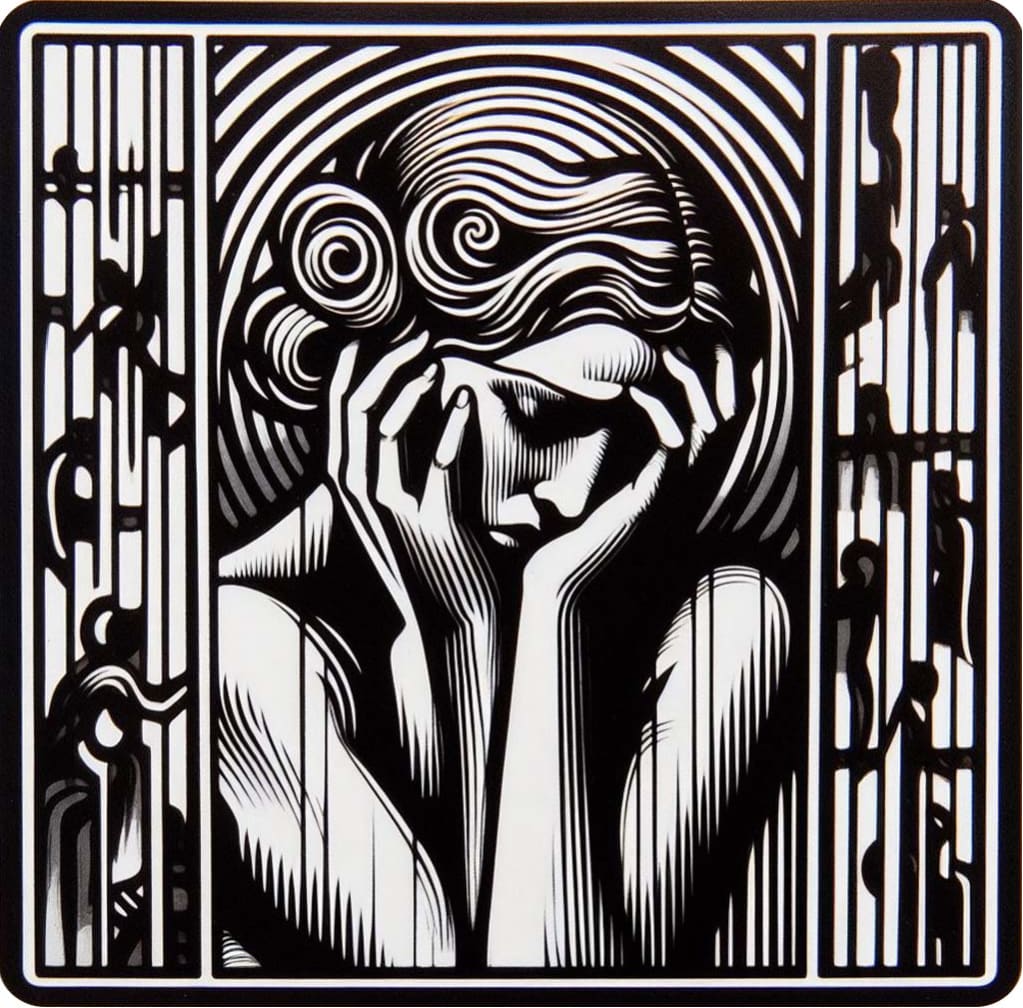
Regret
Let’s remember Charles Baudelaire’s invitation to the readers of his Flowers of Evil that of all the vices the worst is perhaps ennui: boredom.
In the filthy menagerie of our vices,
There is one more ugly, more wicked, more filthy!
Although he makes neither great gestures nor great cries,
He would willingly make of the earth a shambles
And, in a yawn, swallow the world;
He is Ennui! — His eye watery as though with tears,
He dreams of scaffolds as he smokes his hookah pipe.
You know him reader, that refined monster,
— Hypocritish reader, — my fellow, — my brother!
— William Aggeler, The Flowers of Evil (Fresno, CA: Academy Library Guild, 1954)
What we might most regret is any ressentiment or bad faith, the choice to not respond to the intensities of the moment before us.
And how does a collective of artists respond to these intensities of planetary ecological ruin, anthropocentric supremacies, radical centrist political projects that what more of the same (unbridled economic growth, ‘safety’ for ‘families’, etc), military spending run amok, the erosion of rich creative expression by the cliché machines of postindustrial forms of entertainment, neocolonial wars, and many other exigencies?
Well, a first start is definitely to simply affirm these realities, as well as many others: moments of beauty, peacefulness, joy, expansive visions of love and collectivity, kindness and solidarity, generosity, curiosity, and generative exchange.
We could do worse than think through what affirmation of difficulty as well as plenitude can mean with the help of Gilles Deleuze’s influential reading of Nietzsche on the tragic:
Dionysus affirms all that appears, ‘even the most bitter suffering,’ and appears in all the is affirmed. Multiple and pluralist affirmation—this is the essence of the tragic. This will become clearer if we consider the difficulties of making everything an object of affirmation. Here the effort and the genius of pluralism are necessary, the power of transformations, Dionysian laceration. When anguish and disgust appear in Nietzsche it is always at this point: can everything become an object of affirmation, that is to say of joy? We must find, for each thing in turn, the special means by which it is affirmed, by which it ceases to be negative. The tragic is not to be found in this anguish or disgust, not in any nostalgia for lost unity. The tragic is only to be found in multiplicity, in the diversity of affirmation as such. What defines the tragic is the joy of multiplicity, plural joy. (17)
Gilles Deleuze, Nietzsche and Philosophy.
Affirmation without nostalgia; embrace of what has been, what is, and what could be; skilled artistic explorations of plenitude, possibility, and radical loss: these are some of the approaches 4THOT brings with AnthrApology.
(From 8.5 BuffaOHMYGOD! Ted Joans’ descendent channelling Joans’ presence as part of an ancestral spirit retrieval journey, Buffalo, NY, 2638)
Will we hear of augmented 7ths
(really augmented 5ths for anyone that truly lives jazz)
chords we learned from listening to the roads we travelled North and all directions / ancestral
rising beyond the dimishments,
the diminished everything
—cut down in time and prime—
bullet bled angels
flying from Tops Supermarket echoing
Mary Talbert and William Wells Brown
in quantum entangled pain
that unutterable refrain?
Yes we will / We will hear that healing music, and we will dig it.
Will we hear bell hooks taking the boys to task the androsphere
finally syncopating
to new spaces
outside dollar green places
--soundcloud bandcamp mixtape--
hip-hop dystopia redpilled youth AI deepfake fucked up cracker-jacked jive-assed shit crushing Black imagination
until...
until Astral Cool
polyrhythmic breeze
blowing fresh down Buffalo’s Broadway past Coloured Musicians Club Museum intersecting everything in the constellation
—transposing us to all the old-new keys—
taking its place in the black starry night of freedom’s endless refrain?
Yes we will